
The majority of HIV infections are sexually transmitted or are associated with pregnancy, childbirth and breastfeeding.
Our work links prevention with treatment, care and support, reduces HIV-related stigma and discrimination, and responds to unique regional and national characteristics of the epidemic.
Articles by HIV and STIs

IPPF responds to the announcement of funding from the Government of Japan
IPPF’s Director General, Tewodros Melesse, has paid tribute to the Government and people of Japan, following the announcement that Japan will support the provision of sexual and reproductive health and rights (SRHR) for 2017. The Japanese Government has announced that it will contribute approximately 3.1 billion yen (roughly $28 million) to IPPF and the United Nations Population Fund (UNFPA) in annual support. Mr Melesse said: “IPPF is grateful for Japan’s continuing support to SRHR through funding IPPF and UNFPA. Particularly in the current negative climate around SRHR, Japan’s expression of its strong will to continue its support for SRHR is warmly welcome.” “Japan’s long-lasting support for IPPF and for sexual and reproductive health care and rights has always been appreciated. These funds will help IPPF member associations around the world mitigate the cuts in funding we are seeing from some other sources. This will help protect health and save the lives of many people, especially women and girls.” Mr Melesse added: “We agree completely with the Government of Japan when it says that the provision of services relating to sexual and reproductive health and rights is essential for realizing universal health coverage (UHC), that ensures affordable access to basic health services for all whenever they need them throughout their lives. This is stated clearly in the Basic Design for Peace and Health, Japan’s global health policy and one of the outcome documents of the G7 Ise-Shima Summit, as well as in an outcome document from the The World Assembly for Women in Tokyo 2016 (WAW), the Third United Nations World Conference on Disaster Risk Reduction and the Sixth Tokyo International Conference on African Development (TICAD VI). IPPF would like to congratulate Japan’s leadership and commits to working closely with the Government of Japan to make a real difference to the lives of women, men and young people in around world and to achieve the Strategic Development Goals.” IPPF received approximately $1.13m from Japan in early 2017 for its activities targeted to Syrian refugees and internally displaced people, and will receive funding of $7.76m which was recently approved by the Japanese Parliaments.

Japan Trust Fund
The Japan Trust Fund (JTF) represents a visionary partnership that began in 2000 between the Government of Japan and IPPF. Together, we invest in programmes that prioritize health equity, gender equality, and human security for all. Traditionally a driving force behind IPPF's efforts to support the integrated HIV prevention programmes of our Member Associations in Africa and Asia, JTF has adjusted to reflect changing global health priorities. We attach importance to universal access to sexual and reproductive health and rights - an essential contributor to universal health coverage and the global development goals. These projects have transformed the lives of people most vulnerable to HIV and high risk of maternal and child mortality. Equally, it ensures that as a donor, the GOJ’s response to HIV remains people-centred and contributes to human security.
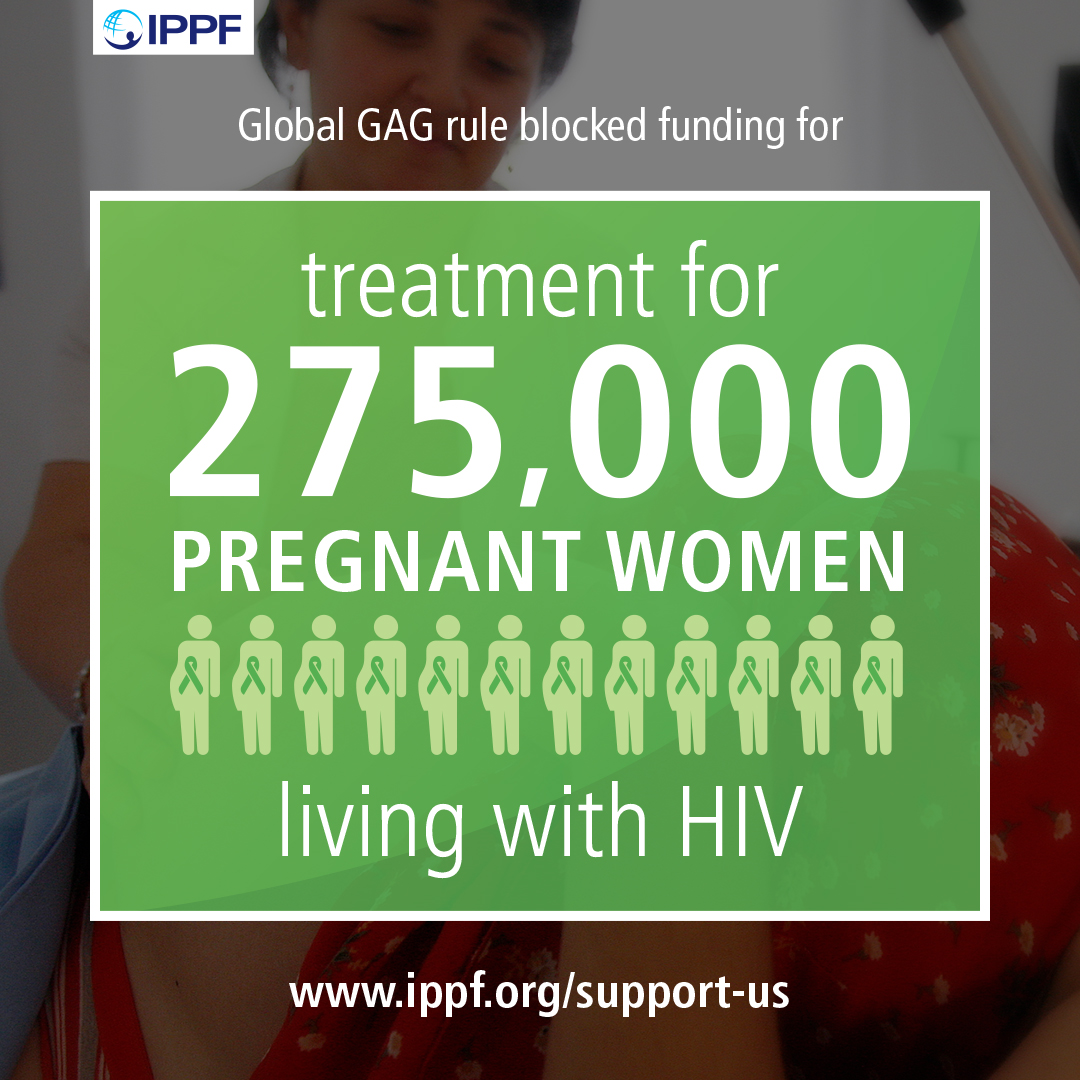
Watch: What's the impact of the Global Gag Rule?
We calculated the human cost of the U.S. Global Gag Rule. The effects can be devastating for millions of poor and marginalised women. WANT TO GET INVOLVED? SUBSCRIBE NOW TO GET UPDATES FROM IPPF SUPPORT OUR WORK WITH A DONATION
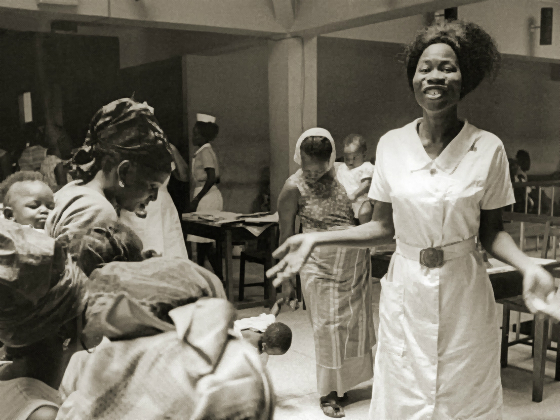
Celebrating over 60 years of service delivery
For over 60 years, IPPF has been at the vanguard of the family planning movement, championing and fighting for rights‑based, voluntary family planning worldwide.
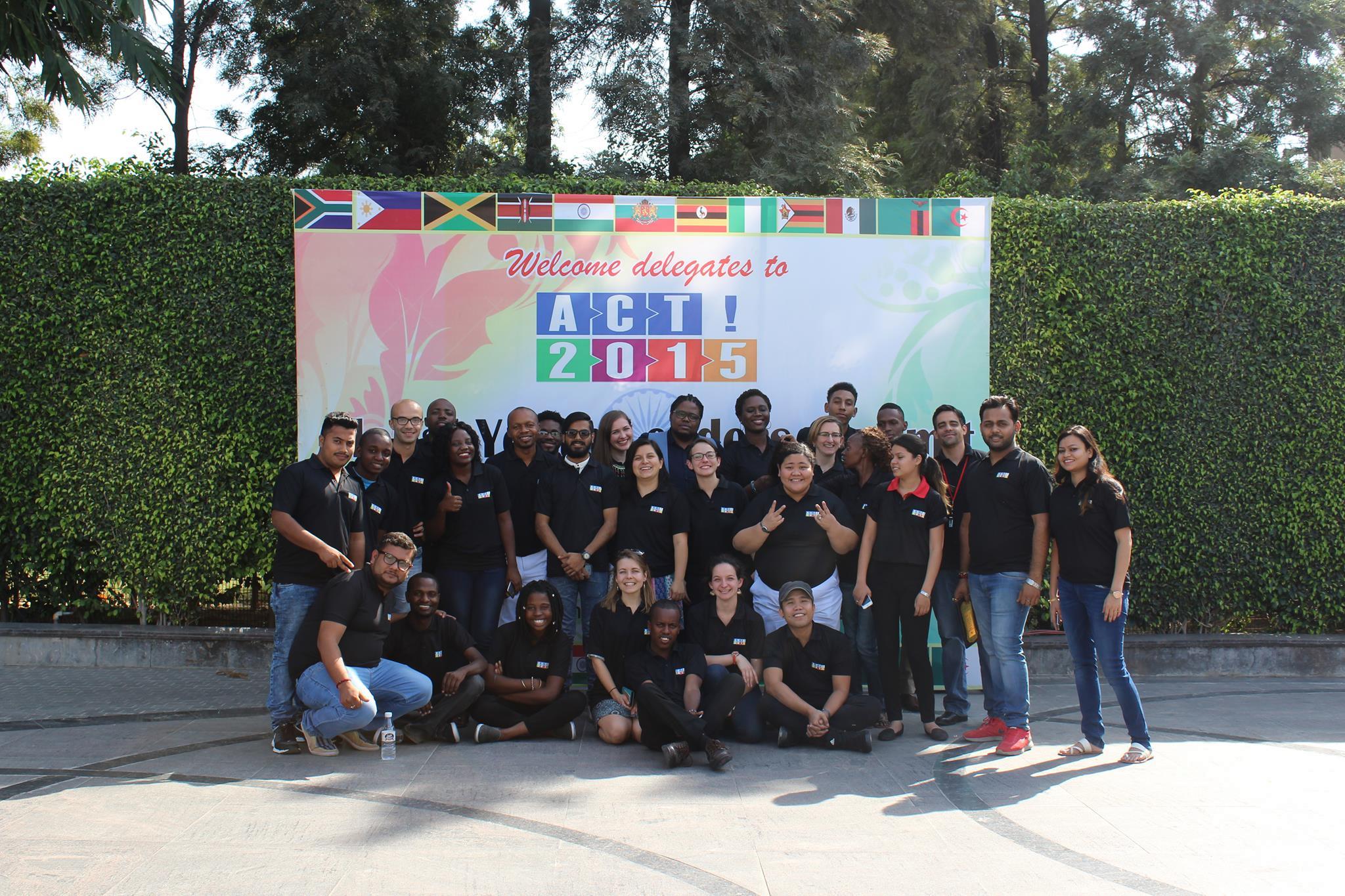
ACT!2030
IPPF collaborates with UNAIDS and The PACT to implement ACT!2030 (formerly ACT!2015), a youth-led social action initiative which engages young people in 12 countries with advocacy and accountability around the Sustainable Development Goals (SDGs) and other SRHR agreements/frameworks. ACT!2030 was initiated in 2013 as a way to increase youth participation in the negotiations leading up to the adoption of the post-2015 development agenda, and for two years focused on establishing alliances of youth-led and youth-serving organisations in 12 countries across the world. The project is currently in Phase 4, which runs until the end of 2017, and aims to establish youth-led, data-driven accountability mechanisms to ensure youth engagement with the implementation of the SDGs and build an evidence base for advocacy. Ultimately, Phase 4 of ACT!2030 seeks to identify, assess and address key policy barriers to young people’s sexual and reproductive data by using existing data, supplemented by youth-collected data, to advocate and lobby for policy change. This phase involves four main activities: indicator advocacy (persuading decision makers to adopt youth-friendly SRHR and HIV indicators, including on things like comprehensive sexuality education (CSE) and access to youth-friendly services, into national/global reporting mechanisms); evidence gathering (creating national databases on quality of and access to youth-friendly services and CSE); communications (transforming this data and evidence into communications pieces that can be used to advocacy and lobby at national and international level); and global exchange (facilitating global visibility to share advocacy and engagement learnings and increase youth-led accountability in global and regional processes). ACT!2030 is implemented by national alliances of youth organisations in 12 countries: Algeria, Bulgaria, India, Jamaica, Kenya, Mexico, Nigeria, Philippines, South Africa, Uganda, Zambia and Zimbabwe.

The human cost of the Global Gag Rule
IPPF has now compiled data outlining how the reinstatement of the Global Gag Rule will affect people’s health around the world. Our global network of local partners delivers more than 300 services every minute of every day. During President Trump’s term, we will forego approximately USD$100m funding from the US government, which would have supported our family planning and HIV programmes for women with the greatest need for these health care services. The regions most affected are sub-Saharan Africa, South Asia and Latin America and the Caribbean. In practical terms, this level of funding could have prevented: 20,000 maternal deaths 4.8 million unintended pregnancies 1.7 million unsafe abortions It could have also provided: treatment to 275,000 pregnant women living with HIV to protect their health and help prevent transmission of HIV to their infants 70 million condoms to prevent unintended pregnancies, HIV and other STIs 725,000 HIV tests to enable people to know their HIV status The foregone funding could have also treated 525,000 sexually transmitted infections. As an organisation that seeks to protect and improve the lives of women, men and children around the world, IPPF and its partners in 171 countries will not sign a policy that denies human rights and puts the lives of women at risk. We are working with governments and others to bridge this new funding gap and help keep our clinics open. Sign up now to get updates on how you can be involved and make a difference. JOIN OUR THUNDERCLAP TO SPREAD THE MESSAGE SUPPORT OUR WORK WITH A DONATION

Extended Mexico City Policy detrimental to health care of world's poorest
Mexico City Policy will have a devastating impact for International Planned Parenthood Federation (IPPF) with its extension far beyond family planning. Restrictions into support for HIV, maternal health and infectious diseases programmes will mean that millions will be denied lifesaving healthcare they need. The policy will hit hardest, the women living at the margins of society – the poorest, the most remote and those under 25. The Global Gag Rule, also known as the Mexico City Policy, denies US funding to organizations who provide any abortion related services, including counselling, even when such services are legal in a national context. IPPF has a special focus on working with the world’s most poor and vulnerable and tailoring services to meet their needs. At country levels, the US funding loss will reduce or halt IPPF’s services and arrest opportunities to scale up, build capacity and reach more people. Tewodros Melesse, IPPF Director General, said in reaction, “For over 30 years, the Mexico City Policy has played politics with women’s lives. It is a cynical attempt to silence the choice and voice of the world’s poorest women. As a champion for them and people everywhere, we will not be held back. "This extended policy covers every aspect of IPPF’s work with the world's poorest people. It also fails in its stated intent to reduce the global incidence of abortion. With the expansion of its restrictions to work on broader health efforts it is short-sighted and dangerous, and threatens years of IPPF gains to advance the health and well-being of communities and undercuts health care access for millions worldwide.” The extended policy will now affect IPPF’s long record of working on HIV prevention in more than 20 countries covering Africa and Latin America often providing clients integrated sexual and reproductive health care services. The Global Gag rule could also endanger emergency funding for Zika prevention, education and health services in Latin America and the Caribbean, where the epidemic continues to rage. Examples of Country Impact: Barbados: IPPF partner Barbados Family Planning Association receives funding from the U.S. government to provide HIV prevention and education services to at-risk, hard-to-reach populations including men who have sex with men. The Caribbean has the second-highest HIV prevalence rate among adults after Sub-Saharan Africa. Nepal: IPPF aims to increase voluntary use of family planning services by increasing accessibility and availability of quality comprehensive family planning services to the hard to reach, disadvantaged, poor and adolescent populations in 11 districts and increase access to voluntary family planning information, education, and services. Nepal has failing and patchy family planning coverage which is often only available at certain times of the year. IPPF are working closely with the government to expand and strengthen static clinics in selected district hospitals, health posts and health facilities with birthing centers to reach all year round, reaching eligible couples with high unmet need. Malawi: The Family Planning Association of Malawi are providing much needed integrated family planning and HIV prevention to young adolescent and women in Malawi via clinics and outreach teams travelling to communities to raise awareness and offer services for vulnerable young women to prevent and treat sexual gender based violence, HIV infection and access to family planning. Without funding they will no longer be able to provide or expand this vital information, support community learning and offer both family planning services and treatment for sexual and gender based violence in one place. The rule blocks critical funding for health services like contraception, maternal health, and HIV prevention and treatment for any organization that refuses to sign up to it. For IPPF, it means foregoing US$100,000,000 that would be directed to proven programmes that provide comprehensive sexual and reproductive health services for millions of women and girls who would otherwise go without vital services that save lives. IPPF is the world’s largest women’s health network with members in 170 countries with over 45,000 service delivery points delivering over 300 services a minute. Individuals can donate to IPPF’s online appeal www.ippf.org/donate WANT TO GET INVOLVED? SUBSCRIBE NOW TO GET UPDATES FROM IPPF SUPPORT OUR WORK WITH A DONATION JOIN OUR THUNDERCLAP View my Flipboard Magazine.
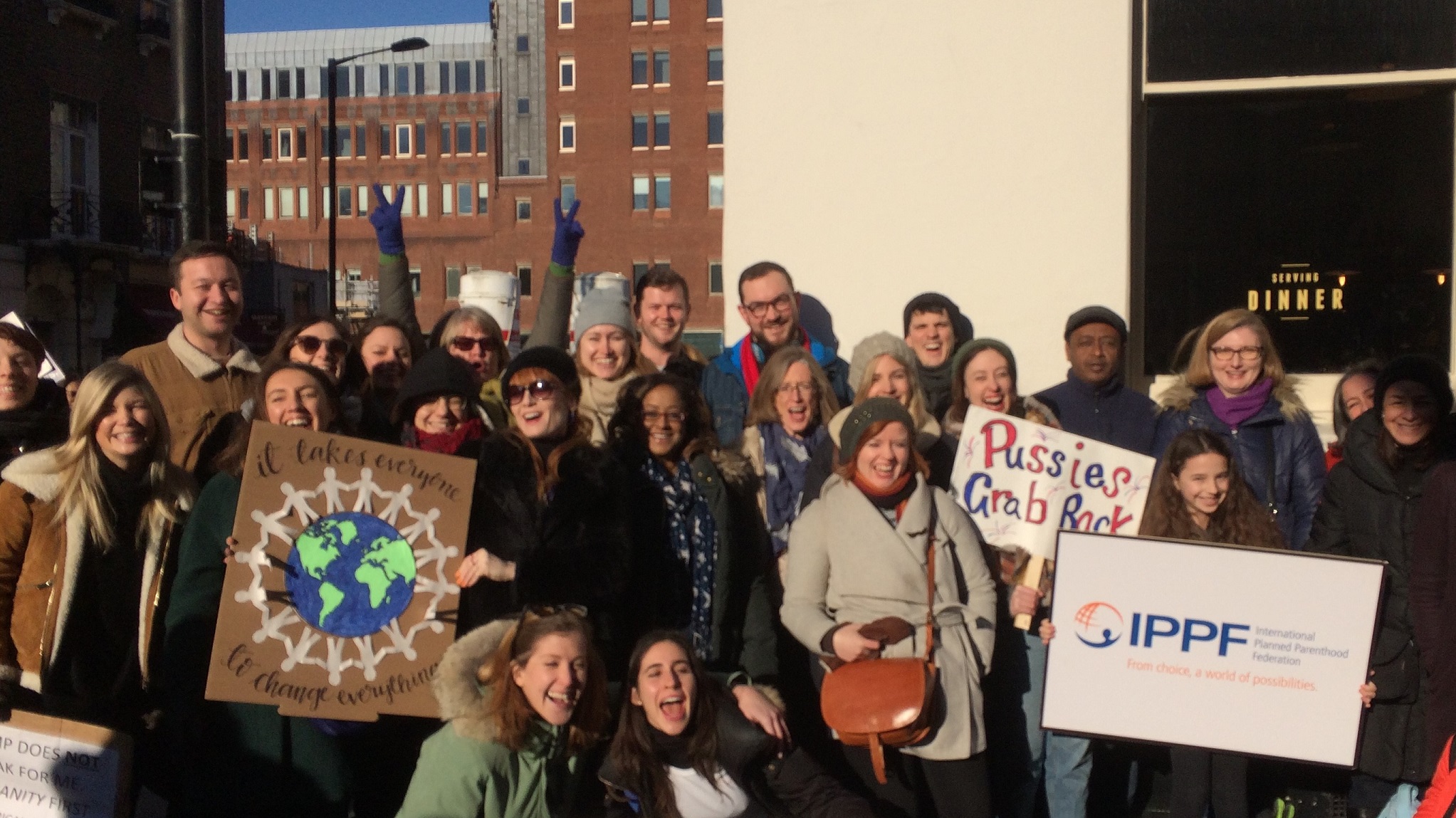
IPPF speaks out against the Global Gag Rule
IPPF stands to lose $100 million USD received from the US, even though none of that money is used for abortion services. IPPF spoke out against Trump's reinstatement of the harmful Global Gag Rule (aka Mexico City Policy) to both BBC's Woman's Hour radio show and Australia's ABC 24 News. Our Member Associations have also spoken out against this violation of rights that service restrictions will lead to: "Funding cuts would mean we can't support 37 districts including supporting Government of Nepal effort on sexual and reproductive Health and rights. Additionally we would not be able to run community clinics or mobile health days or train health care workers. The impact also means we would lose essential medical staff like nurses, doctors and health experts. It would be devastating. " - Ms. Amu Singh Sijapati, President of Family Planning Association of Nepal As one of the biggest family planning organizations in the world, we work in over 170 countries to deliver integrated sexual and reproductive health services to the most marginalized women and communities around the globe. Funding cuts will limit the range of services and restricts how well they can be accessed in remote and rural areas by those who can’t afford transport, food or housing, and will now have to pay for services from other providers who charge more for treatment. "Our projects make a real difference. Young people living with HIV face stigma and violence which is a big problem for girls here in Kenya. These issues create barriers for getting care which means higher risks of ill health and harm. It’s vital that we work within local communities and offer services that recognise these specific needs. Without further funding FHOK may be unable to continue this support, scale up or replicate in other parts of Kenya. It would mean denying services to those who need them the most." - Edward Marienga, Executive Director -Family Health Options of Kenya Putting a ‘gag order’ on local providers who know the specific laws and needs of their communities flies in the face of common sense and reason,” said Marta Royo, Executive Director of Profamilia Colombia, an IPPF Member Association. "The impact of the rule under other U.S. Administrations has been dramatic—many organizations were forced to slash services or even shut their doors because they lost US funding for even mentioning abortion. As a result, women lost access to maternal health care, treatment for HIV and contraception that would help them prevent unintended pregnancies in the first place. Unsafe abortion is one of the leading causes of maternal death in the world and evidence has shown that denying women’s access to abortion doesn’t reduce the incidence of abortion; it just makes it unsafe.” WANT TO GET INVOLVED? SUBSCRIBE NOW TO GET UPDATES FROM IPPF SUPPORT OUR WORK WITH A DONATION View my Flipboard Magazine.
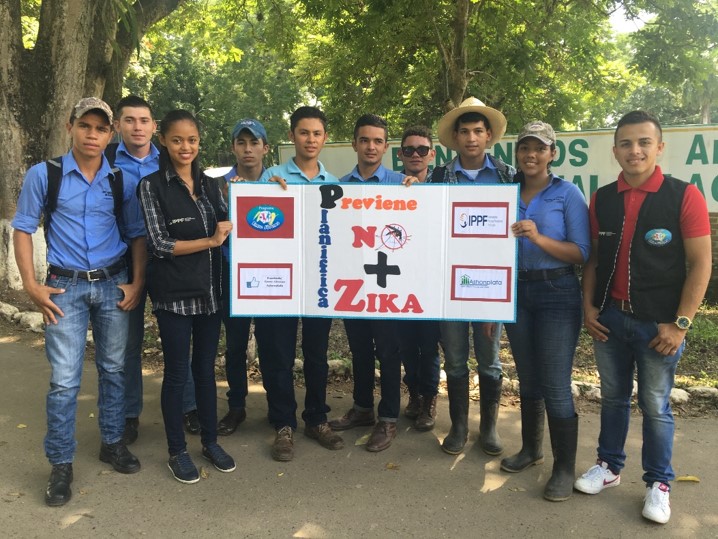
SIFPO 2: Supporting voluntary family planning and Zika prevention in countries affected by Zika
The rapid spread of the Zika virus by mosquitos and through sexual contact, prompted the World Health Organization to declare a public health emergency in 2016. Women living in Caribbean and South American favelas and in rural areas, where mosquitos are a part of everyday life and where sanitation is poor, are more susceptible to infection and less likely to have access to sexuality education, and family planning services. Government recommendations to delay pregnancy cannot be realized without improved access to voluntary family planning. Zika presents a new challenge to health workers in South and Central America as the outbreak of Zika has led to an increase in demand for voluntary family planning services amongst women of reproductive age who are at risk of or affected by Zika. Although information about Zika has made the headlines around the world, women in countries affected by Zika often lack information about the virus. In particular, information is sparse about the sexual transmission of Zika, and how family planning can be used to reduce risk of infection and avoid unplanned pregnancies. Providers have not been trained before on how to screen women for Zika, or support couples to make important decisions about family planning in the context of the outbreak. In response to the Zika outbreak, IPPF is helping its network of clinics and community and mobile health programmes to increase access to contraceptives and broaden public awareness about the virus. This work will be carried out in close collaboration with national governments and other health providers to ensure maximum impact and avoid duplication of efforts. The USAID funded SIFPO2 project is supporting 4 MAs in Honduras, the Dominican Republic, Guatemala and El Salvador to scale-up out-reach services in high burden areas; training government health workers on Zika and family planning counselling; and integrating Zika information into contraceptive counselling and antenatal care across IPPF’s extensive network of clinics. The objectives of the activity are: To improve women of reproductive age’s access to healthcare services in Zika-affected or at-risk communities to promote informed and safe conception, including antenatal and postnatal care, child development and FP services. To improve providers’ capacity to deliver high quality Zika-related healthcare and social services to women of reproductive age, specifically pregnant women, families and children affected by Zika. Results to date: 1,000 health workers received specialist training in 2016 in Zika prevention and voluntary FP services. Providers have been given guidance and protocols on how to counsel non-pregnant women on Zika prevention, and on screening and counselling for pregnant women during routine antenatal check-ups. In 2017, the project plans to reach hundreds more providers. Each of these health care workers will go on to deliver high quality Zika-related healthcare to women, couples and families at a time when they need it most. The project is supporting an expanded network of voluntary FP services through mobile clinics and via community workers to ensure access in the poorest and hardest to reach areas In Honduras, IPPF’s Member Association is the only organisation working to educate and inform the public about sexual transmission of the Zika virus In El Salvador, IPPF’s Member Association is facilitating radio messages to share information about Zika. In Guatemala, community-based promotors reached nearly 1,500 people with Zika prevention messaging in December alone. This information enables women and families in poor communities to make informed decisions about how to protect their health and their futures. The Support for International Family Planning Organizations 2 – Sustainable Networks project is a five-year cooperative agreement funded by the U.S. Agency for International Development under Agreement No. AID-OAA-A-14-00038, beginning May 13, 2014. The information provided in this document is not official U.S. government information and does not necessarily represent the views or positions of the U.S. Agency for International Development.
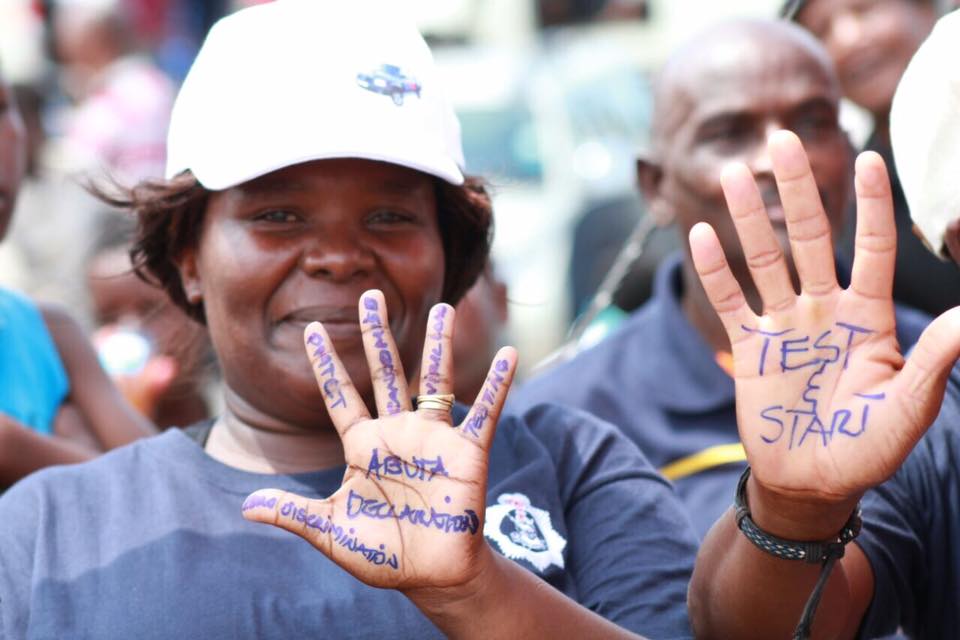
‘Hands Up for HIV Prevention’ says IPPF Director General in Swaziland for World AIDS Day 2016
Mankayane, Swaziland - On 1 December, IPPF Director General, Tewodros Melesse, made an address on the occasion of World AIDS Day in the Kingdom of Swaziland along with His Excellency the Right Honourable Deputy Prime Minister, Mr Paul Dlamini, Honourable Minister of Health Ms Sibongile Ndlela Simelane, United Nations Resident Coordinator, Mr Israel Dessalegne, and the United States of America Ambassador to Swaziland, Ms Lisa Peterson. "It is an honour and a privilege to be commemorating World AIDS Day with you, the Swazi people. Every year, World AIDS Day provides us with the opportunity to take stock of how far we have come since the early days of the epidemic. I’d like to begin by taking us 30 years back in time, which was 1986. That year, IBM unveiled the first laptop. Mobile phones were the size and weight of large bricks. In apartheid-era of South Africa, Nelson Mandela was behind bars; and here in Swaziland, the country recorded its first case of HIV/AIDS. Many of you here today will agree with me when I say that, while Swaziland has not been immune to the many ways in which the world has changed over the past thirty years, it is the HIV epidemic more than anything else that has shaped this country during that time. For those of you who have lived through the epidemic, you will remember all too well the fear and the stigma that ran through this country and many African countries. You will remember how little we knew about HIV, and about how to prevent it. People living with HIV at this time deserve to be honoured. You showed us the strength and determination to fight for change. You were brave and angry, and gave hope to others. As I stand in front of you, I am keenly aware that there is not a single person here whose life, one way or another, has not been affected by HIV, and that all young people here today have never seen a world without HIV. The young people are the future but we have to remind ourselves that there is no future if we don’t invest in prevention. Many of you have loved ones who were taken from this world before their time. You grieved and continue to grieve the loss of brothers, sisters, mothers, fathers, children, grandchildren, friends, colleagues, and many others. These vibrant souls, remain with us always, in our hearts and in our minds, and give us energy to continue in the future. We can now take some comfort from the fact that the picture has changed dramatically in these past thirty years. Most significantly, people living with HIV are now living longer, healthier, and productive lives well into their old age, thanks to the availability of antiretroviral treatment that has transformed HIV infection into a chronic, manageable condition. I would like to take this moment to commend the Government of the Kingdom of Swaziland for its commitment to providing antiretrovirals free to all who need treatment. The impact of this cannot be underestimated. AIDS-related mortality has reduced by drastically and accordingly, life expectancy has now rebounded. The transmission of HIV from mother to child is close to being eliminated along with syphilis. And overall, Swaziland has also begun to see a downward trend of new HIV infections, especially among young people. ‘Now is not the time to be complacent’ These are remarkable successes, and Swaziland has established a strong foundation. Critically, this is a foundation upon which to build - not to rest. We cannot risk becoming complacent, as HIV remains the greatest public health and socio-economic challenge facing this country. Importantly, our response must be integrated with other key challenges. We know that there is a high unmet need for family planning, leading to high levels of unwanted pregnancy; we know that maternal and infant mortality is unacceptably high; and we know that the overall knowledge of sexual and reproductive health is exceptionally low among young people. ‘There is a serious prevention gap’ This situation is not unique to Swaziland. UNAIDS is raising the alarm about the global picture and what it calls the ‘prevention gap’. Efforts to meet the global target of ending AIDS by 2030 are off track and progress is at risk of stalling. The global community warns that if there is a resurgence of HIV, the epidemic will be impossible to control. This cannot be allowed to happen. Primary prevention has been and will continue to be an essential component of the HIV response. To attain an AIDS-free generation, we need new solutions, new innovations and, importantly, we need to reinvigorate our prevention efforts. Prevention saves lives, saves budget, and increases productivity. ‘Hands Up for HIV Prevention’ Today, people across the global are raising their hands to HIV prevention this World AIDS Day. There is no ‘one size that fits all’ and we must pay special attention to those that continue to be left behind. Young women and girls are at a particularly high risk of HIV infection. They need information and the freedom to make free and informed decisions about their sexual and reproductive health; they need access to effective HIV and sexual and reproductive health services; they need services that are youth-friendly; and they need gender-based violence to be eliminated and gender inequalities to be eradicated. We are also leaving key populations behind – including sex workers, people who inject drugs, transgender people, and men who have sex with men. Many countries in the world push these populations to the margins of society. It is essential that our prevention efforts bring these populations forward. To end HIV, no one can be left behind. I must commend the efforts to ensure the meaningful engagement of these populations; and by taking steps to remove barriers to access services. At the root of all of our prevention efforts is a recognition that the HIV epidemic is being fuelled by inequalities and prejudices entrenched within the legal, social and economic structures of society. Poverty, sexism, homophobia, and other forms of discrimination – are well known barriers to ending HIV. To ensure that everyone can live a life of hope, with dignity, respect and meaning – people must be free to make choices about their sexuality and well-being, in a world without discrimination. ‘We need to work together to give hope’ I truly believe that we will not see an end to HIV unless we work together, be it at the local level, the regional level or at the global level. The remarkable successes that we have witnessed have been the result, not of a single actor, but of a chorus of voices that have called out in unison for better access; and that demanded respect, care and compassion. Civil society in particular has an incredible track record of mobilizing the required response. It has been instrumental in changing public attitudes and perceptions, and has also be mobilised to address barriers that prevent people from realising their right to health. In conclusion, the power to end HIV and AIDS does not lie with a single individual, with a single organisation, or government structure. When we leverage the unique skills that we all bring to the table, we will reach our goal of ending AIDS both in Swaziland and the world. This power is ours and the time to act is now. If we work together as Obama says, ‘Yes, we can!’, then we can do it. I leave you with a story. Like FLAS, I visited the IPPF association in Iran who are working with underserved communities, such as sex workers, and integrating in society. I asked one young woman, ‘if you were God for fifteen minutes, what would you do?’ She said, ‘I would give hope, if you have hope, you can overcome your challenges’. We need to keep that hope and give that hope to the people. We can give that hope by doing it together."
Pagination
- Previous page
- Page 9
- Next page







